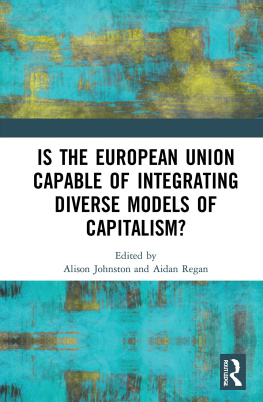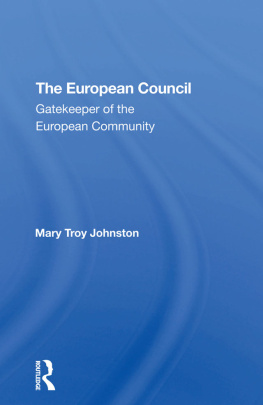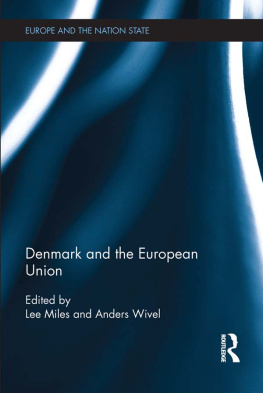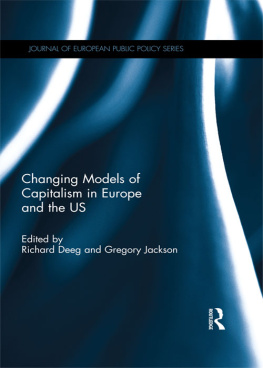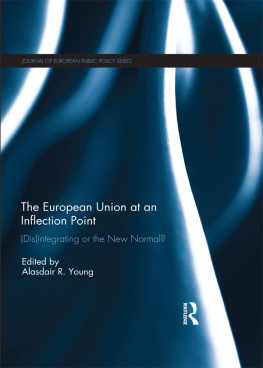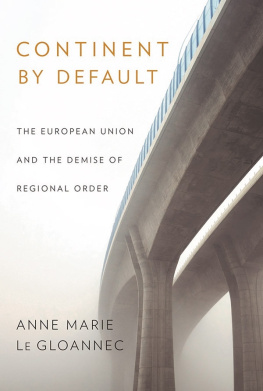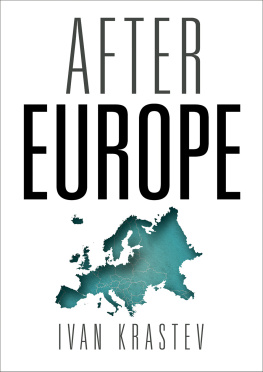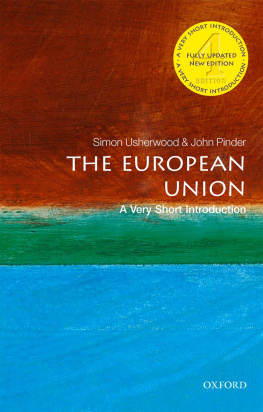Is the European Union Capable of Integrating Diverse Models of Capitalism?
The 2009 European sovereign debt crisis and the EUs policy response to it have prompted scholars to re-think whether diverse national models of capitalism can thrive within the European Union (EU). Are some national economic systems better suited to adapt to European integration than others, and if so, why? Contributions within this volume provide a qualified yes to these questions raised, concluding that the EU favors export-led growth models while it penalizes and discourages domestic consumption-oriented growth paths, particularly those that are financed by debt-accumulation. The book questions whether the EU is capable of integrating these diverse capitalist regimes.
This volume adds a comparative capitalism perspective to EU integration scholarship in order to demonstrate that ever-closer union is not capable of accommodating diversity in national economic institutions. Chapters in this volume provide an innovative framework for understanding what factors related to European integration impede the economic and political integration of diverse European market economies. While recent comparative capitalism literature highlights that European monetary integration has favored export-led growth regimes, contributions in this volume outline that the EUs prioritization of export-led growth over domestic-demand led growth is present in other facets of integration, including EU accession, financial integration, the free movement of people, fiscal governance and the Europe 2020 growth strategy.
The chapters in this book were originally published as a special issue of New Political Economy.
Alison Johnston is Associate Professor and the U.G. Dubach Chair in Political Science in the School of Public Policy at Oregon State University, Corvallis, USA.
Aidan Regan is Associate Professor in the School of Politics and International Relations at University College Dublin, Ireland, and the director of the Dublin European Institute.
First published 2021
by Routledge
2 Park Square, Milton Park, Abingdon, Oxon, OX14 4RN
and by Routledge
52 Vanderbilt Avenue, New York, NY 10017
Routledge is an imprint of the Taylor & Francis Group, an informa business
Introduction, Chapter 3, Chapter 4, Chapter 5, Chapter 6 2021 Taylor & Francis
Chapter 1 2017 Martin Hpner and Alexander Spielau. Originally published as Open Access.
Chapter 2 2017 Gregory W. Fuller. Originally published as Open Access.
With the exception of , please see the chapters Open Access footnotes.
Trademark notice: Product or corporate names may be trademarks or registered trademarks, and are used only for identification and explanation without intent to infringe.
British Library Cataloguing-in-Publication Data
A catalogue record for this book is available from the British Library
ISBN 13: 978-0-367-74549-3 (hbk)
ISBN 13: 978-1-003-15845-5 (ebk)
Typeset in Myriad Pro
by codeMantra
Publishers Note
The publisher accepts responsibility for any inconsistencies that may have arisen during the conversion of this book from journal articles to book chapters, namely the inclusion of journal terminology.
Disclaimer
Every effort has been made to contact copyright holders for their permission to reprint material in this book. The publishers would be grateful to hear from any copyright holder who is not here acknowledged and will undertake to rectify any errors or omissions in future editions of this book.
Alison Johnston and Aidan Regan
ABSTRACT
The causes and consequences of the Euro crisis have led comparative political economy scholars to question whether European integration can accommodate diverse models of capitalism. This special issue addresses two important questions about the compatibility of diverse growth models within the European Union (EU): Are some growth regimes better suited to European integration than others? and does the EU favour a particular constellation of domestic institutions? Contributions within this special issue provide a qualified yes to these questions, concluding that the EU favours export-led growth models whilst it penalises and discourages domestic consumption-oriented growth paths, particularly those that are financed by debt accumulation. While recent comparative capitalism literature highlights that European monetary integration has favoured export-led growth regimes, contributions in this special issue outline that the EUs prioritisation of export-led growth over domestic demand-led growth is present in other facets of integration, including EU accession, financial integration, the free movement of people, fiscal governance and the Europe 2020 growth strategy. Findings here provide important insights for both the European integration and comparative capitalism literature, highlighting that the unique economic ties being forged within the European project may be problematic for those countries outside northwestern Europe and for workers in low-wage domestic sectors.
The European Union (EU) faces a multifaceted crisis of significant proportions. Between the European debt and banking crisis, the European Commissions haphazard response to it, the migration crisis that has followed in the wake of the Syrian refugee crisis, and now Brexit, EU leaders have plenty to be concerned about. Europeanists have long argued that European integration has been forged from crisis and failing forward (Lefkofridi and Schmitter 2015, Jones et al. 2016euro. Hence, while crisis may forge new steps towards more European integration, recent events suggest that scholars must theorise the possibility of disintegration as a response to crisis.
European integration scholars have long been conscientious about how divergences in member-states preferences impact deepened integration, or the lack thereof (Bickerton et al. 2015, Pollack 2015). However, they have largely taken national institutional diversity among member-states national models of capitalismJones (2003) highlighted that the national diversity of the EUs member-states was a core determinant in shaping the pattern of economic integration in Europe. According to these authors, diverse national models of capitalism could co-exist because the EU provided the variegated flexibility for countries to pursue their own economic and employment growth path.
Recent research on comparative capitalism and European integration, however, has introduced a more pessimistic tone into the debate on national diversity within the EU. Current events suggest that the EUs different growth regimes are not similarly thriving under deepened European integration. Some member-states (Germany and the small open economies of Northern Europe) have adjusted well to the opportunities of the EU, and their power within the Council reflects this (Fabbrini 2013). Others (the EUs Southern periphery) remain trapped within a cycle of economic and political crises. In particular, Hall (2012, 2014), Johnston and Regan (2016), Johnston (2016), Regan (2015), Streeck and Elssser (2016), Bohle and Greskovits (2012), and Streeck (2014) have posited that European monetary integration is incapable of accommodating diverse policy responses to the Euro crisis. This is particularly the case for southern European countries that have been traditionally reliant upon domestic consumption and debt accumulation to generate growth, which the new economic governance rules of the Eurozone rule out (Degryse 2012, Rittberger 2014, Erne 2015). Comparative capitalism scholars have recently argued that though European Monetary Union (EMU) was originally a neoliberal, monetarist project, ironically, the common currency allotted the EUs export-dependent Northwestern economies and their coordinated labour markets, a persistent comparative institutional advantage over their demand-led counterparts within the South and East, destining the Eurozones peripheral countries to an irreconcilable growth crisis.

